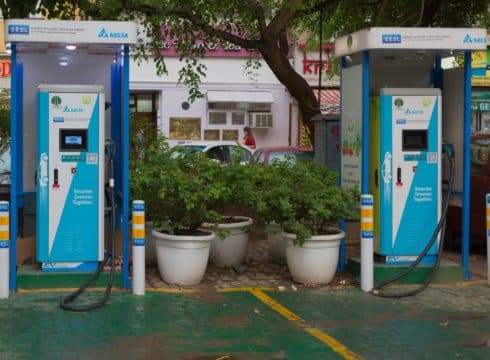Chandigarh is undertaking steps to adopt emobility under Smart Cities Mission of the Ministry of Urban Development
Shifting to EVs has become utmost important as the city is reeling under severe air pollution
The UT has set few agendas to encourage people to adopt electric vehicles
Inc42 Daily Brief
Stay Ahead With Daily News & Analysis on India’s Tech & Startup Economy
In a bid to become a smart city under the Smart Cities Mission of the Ministry of Urban Development, Chandigarh is taking small but concrete steps towards adopting electric mobility as soon as possible.
Moreover, the city, with the highest density of vehicles in India, is looking to adopt EVs aggressively as it faces a huge challenge in maintaining the deteriorating air quality.
The Chandigarh Transport Undertaking (CTU) on Thursday (October 17) stated in a report that it has floated a tender for 40 electric buses and charging stations. The Joint Electricity Regulatory Commission (JERC), according to a draft EV policy, has also fixed INR 4 per unit and INR 100 for a fixed monthly charge on electric bill for the charging stations, as drafted in the policy by Chandigarh.
The draft also mentioned that Chandigarh will become one of the world’s leading clean vehicle cities and would promote research and development, innovation and skill development in the EV sector. To implement this successfully, the union territory has set few agendas like offering incentives to encourage people to adopt electric vehicles.
More Incentives For EV Buyers
- Buyers of two-wheeler and three-wheelers can avail a direct subsidy of INR 20,000, valid only for first 3,000 customers
- For First 1,000 EV buyers, free insurance
- Free parking slots reserved for EVs, in all government-owned parking spaces. And for all the commercial buildings, education institutions and RWAs, parking space for EVs with charging facilities shall be reserved at all times.
- Dedicated parking spaces (30%) for EVs in new public parking lots
The World Economic Forum (WEF) recently released a report stating that India has the potential to become the largest EV market in the world. Christoph Wolff, head of mobility, WEF said, “The role of government is crucial for accelerating adoption. Right now, the uptake of electric vehicles is slow due to the high upfront cost and range anxiety, but a long-term investment in research and development (R&D) will create sustained growth.”
The report also highlighted trends around state policies and programmes promoting EV adaptability and EV infrastructure, where most states and UTs have a special provision to install EV charging points in public and private spaces.
Uttar Pradesh, for instance, has set a target to install two lakh EV charging stations by 2024, while Andra Pradesh plans 100 % electrification of buses by 2029.
The report also gives recommendations to further strengthen the EV policies in India for holistic development, which fall on the lines of research and development, production and attracting more customers. The recommendations are based on lessons from leading EV ecosystems such as the US, China, Taiwan and Europe.
{{#name}}{{name}}{{/name}}{{^name}}-{{/name}}
{{#description}}{{description}}...{{/description}}{{^description}}-{{/description}}
Note: We at Inc42 take our ethics very seriously. More information about it can be found here.


